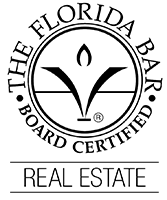There’s No Such Thing As A Standard Contract
When a client tells me “I signed a standard contract”, a red flag pops up in my brain telling me this is client code for “I didn’t read the contract before I signed it.”
There are many reasons people don’t read contracts before signing them. Often it’s because someone told them it’s a standard contract and they don’t want to rock the boat by reading it and asking questions.
The problem with this is that most contracts are not standard. Most contracts have wording in them that favors one side over the other. For example, I have a standard contract for sale of real estate when my client is the seller and a different standard contract for purchase of real estate when my client is the buyer. One has wording favoring the seller, and the other favors the buyer.
Most contracts beg to be negotiated. But you have to read them to know this. That’s when you find out things that you are giving up when you sign. And after you sign, it’s too late to negotiate the wording.
Many years ago, there were two kinds of contracts: (1) contracts typed on a typewriter and (2) contracts printed by a commercial printer. You could easily tell the difference when looking at them. Typewriters used Courier font and commercial printers used Times Roman font. Lawyers had the habit of referring to the commercially-printed Times Roman contracts as standard contracts.
But even back then this was not entirely accurate. Each printer had its own set of forms. If you compared forms from Ramco, Seminole, and Blumberg you would find many differences between them. Yet, the habit of referring to them as standard forms persisted. Even to the present day.
So, when a client tells me it’s a standard contract the first thing I ask is “who’s standard is it?”
For additional information, see the free ebook written by Florida Bar Board Certified Real Estate Lawyer James W. Martin on Florida Real Estate Sales Contracts.






